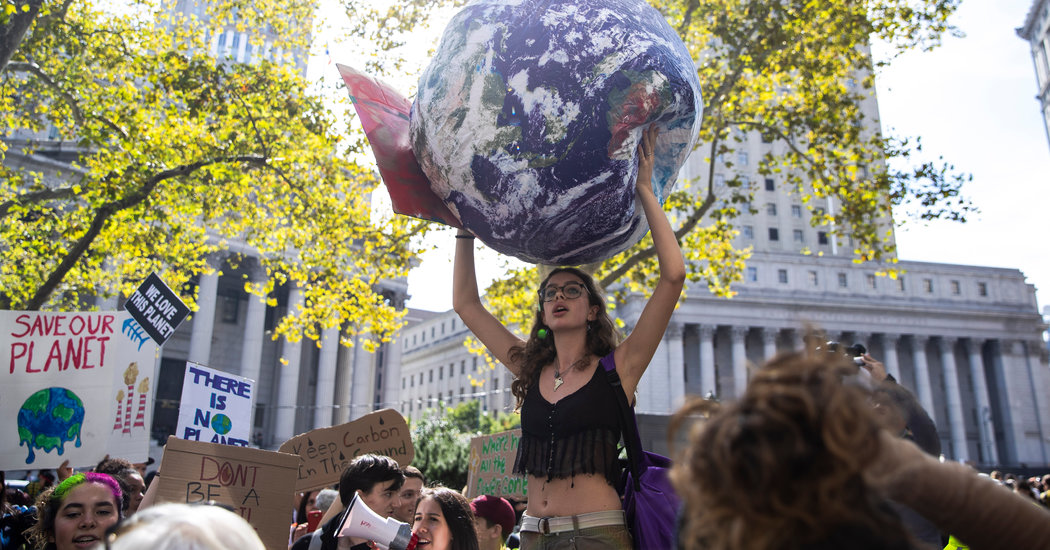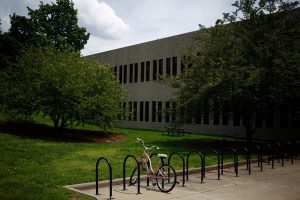Americans’ positions on climate change have remained largely unshaken by the coronavirus pandemic and economic crisis, according to a new national survey that showed acceptance of the reality of global warming at record highs in some categories.
In the report, Climate Change in the American Mind, written by researchers at Yale University and George Mason University and scheduled to be made public on Tuesday, 73 percent of those polled said that climate change was happening, which matches the highest level of acceptance previously measured by the survey, from 2019.
The percentage of people who are “extremely” or “very” certain that it is happening has risen to a record high, 54 percent. And 62 percent accepted the established scientific view that global warming is mostly caused by human activity, a level also tied with the figure for 2019.
By contrast, only one in 10 Americans said global warming was not happening, and just six percent were “extremely” or “very” sure that it was not happening.
The findings are somewhat surprising because of a hypothesis in psychology called the “finite pool of worry,” which suggests that when people’s level of concern about one issue rises, concern about others tends to fall.
Many social scientists have pointed to a drop in Americans’ level of acceptance of climate science that occurred during the Great Recession, which began in the late 2000s, as evidence supporting the theory: From 2008 to 2010, public understanding that global warming is occurring fell by 14 percentage points, with similar drops in the perception that humans are the cause.
Subsequent analysis from researchers at the University of California, Santa Barbara, and the Yale program suggested that the recession did not cause the drop. Researchers traced it instead to political attacks on climate science during national debates over proposed climate legislation and international agreements on curbing the effects of warming.
Conservative groups and the fossil fuel companies “were working in overdrive and spending millions and millions of dollars to try to disrupt the policy process,” said Anthony Leiserowitz, director of the Yale Program on Climate Change Communication. At the same time, political leaders expressed denial of climate science. “When leaders lead, followers follow,” he said.
When the coronavirus pandemic and its attendant economic devastation made their way around the world, many wondered whether concerns about climate change would be eclipsed. Edward Maibach, director of George Mason University’s Center for Climate Change Communication, said, “I personally was quite concerned that public worry and engagement about climate change would be greatly diminished at present as a result of the pandemic.”
The answer, at least so far, is that climate attitudes have not shifted. “We see no drop-off at all in beliefs,” Dr. Leiserowitz said.
This steady level of understanding and concern has persisted even as the prominence of climate change has diminished in the news media because of the crush of news about the pandemic and its effects. Just 24 percent of those surveyed said they had heard about climate change in the news media at least once a week; last November that figure was 35 percent.
The new survey also found that two out of three Americans said global warming was either extremely, very or somewhat important to them personally, and more than four in 10 said they would be personally harmed by the effects of a warming planet. Nearly half said global warming would affect people in their community, and a majority said they were at least moderately interested in news stories about climate issues, including actions by government.
The steadiness of American attitudes, Dr. Leiserowitz said, suggests that “climate change has matured as an issue” and become “a durable worry” in millions of Americans’ minds.
Americans, Dr. Maibach said, have until recently “accepted the reality of climate change but saw it as a distant problem,” both far away across the globe and far in the future. The latest survey shows “the majority of Americans see climate change as a clear and present threat to the health of people in their community,” he said. “It’s a threat that’s come home.”
The survey was conducted from April 7 through the 17th, when much of the United States was already under shelter-in-place orders and the economic impact of the coronavirus was apparent. It involved 1,029 adults, with a margin of error of plus or minus three percentage points.
The finite-pool-of-worry concept could still be correct, Dr. Leiserowitz said, but “climate change is central enough to many people’s pool of worry that it hasn’t been displaced.” The coronavirus crisis could actually be contributing to public support for climate science, he said, because the administration’s stumbling response to the pandemic has underscored the message “that science matters, that expertise matters.”
Dr. Maibach agreed. The loss of 90,000 American lives, he said, “has been a very powerful and bitter lesson in the need to listen to experts.”
Sunshine Menezes, an associate professor of environmental communication at the University of Rhode Island who was not involved in the survey, expressed surprise about the results.
“I’m excited by these findings.” Dr. Menezes said. “Taken together, the report’s findings indicate that Americans are reaching, or maybe even have reached, a turning point. They see climate change in their backyards, they recognize the unequal impacts, they increasingly recognize the urgency of adaptation measures, and they want news coverage that tackles consequences and solutions.”



















